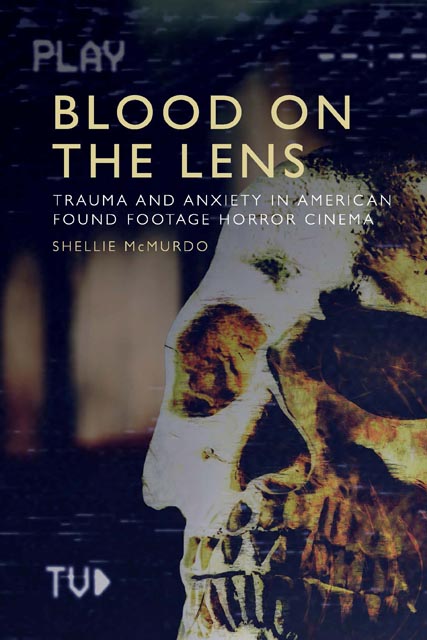3 - Found footage horror and historical trauma
Published online by Cambridge University Press: 13 April 2023
Summary
A Vice magazine documentary crew – reporter Sam, cameraman Jake and photographer Patrick – travel to a remote clean living and religious community named Eden Parish. Their intention is to document the reunion of Patrick with his formerly drug-addicted sister, Caroline. Once they arrive, Sam and Jake become apprehensive about what is really going on at the settlement, despite reassurances that it is an idyllic paradise. After Sam interviews the enigmatic leader of Eden Parish – a man everyone there calls Father – he and Jake are approached by several members of the congregation with reports of abuse and manipulation, and asked for their assistance in leaving the Parish. The next morning, as the crew members prepare to travel to their waiting helicopter, chaos breaks out as fractures appear between those wishing to leave Eden Parish and those wanting to stay. A shooting occurs at a nearby airstrip, while Father hurriedly assembles his congregation and urges them to drink a ‘potion’ that will end their lives. The majority of the parishioners obey Father’s wishes and – overcome by the potion’s poisonous contents – lay down to die with their families, while members of the community who refuse the drink or try to escape are executed by armed guards. While Patrick does not survive, Sam and Jake, who were separated in the earlier commotion, reunite in time to witness Father’s suicide, and then manage to escape in the helicopter. Their camera captures sweeping aerial shots of the Eden Parish compound as it burns to the ground.
If this description of The Sacrament’s narrative sounds familiar, it is because it bears more than a vague resemblance to the events of 18 November 1978 in Guyana, which have become known as the Jonestown Massacre. Jonestown was a settlement created by the American religious group Peoples Temple in 1974. While Temple members had been relocating to Guyana and aiding in the construction of the compound since its establishment, there was a mass exodus to the settlement in 1977 after growing media attention was focused on the Church’s leader, Reverend Jim Jones. This media interest was initiated by reports of Jones’s abuse of his congregation by former members, some of whom founded the Concerned Relatives Group (Gunn, 2017: 369).
- Type
- Chapter
- Information
- Blood on the LensTrauma and Anxiety in American Found Footage Horror Cinema, pp. 43 - 66Publisher: Edinburgh University PressPrint publication year: 2022



